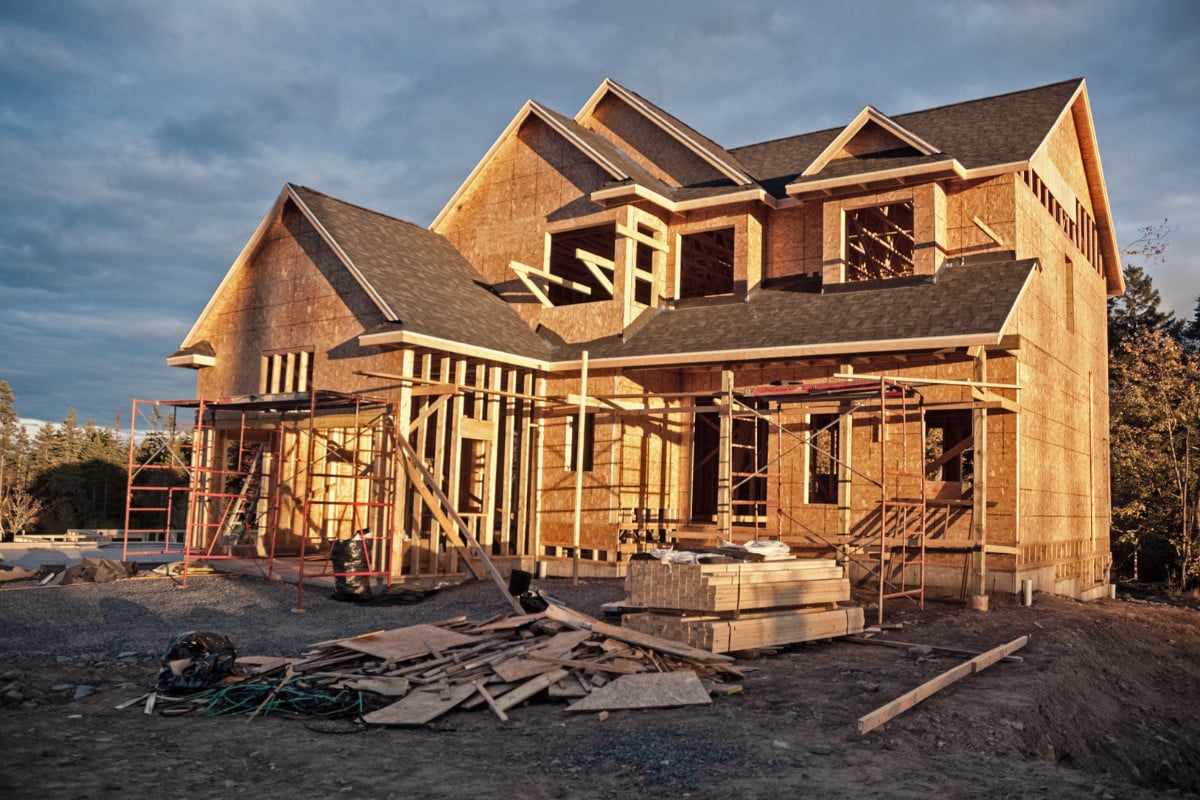In the ever-evolving world of real estate, consumers are faced with a crucial decision when searching for their dream home—should they opt for the charm of an established property or embrace the allure of a brand-new construction? Given the frenzy of new home construction to meet the national shortage of homes for sale, it makes sense that many buyers are turning to new construction homes and condos for their next home base.
The choice between existing homes and new builds is not merely a matter of personal preference; it involves careful consideration of the pros and cons associated with each option. We’re exploring the advantages and drawbacks of new construction homes, empowering prospective buyers to make informed decisions in their quest for the perfect abode.
Pros of New Construction Homes
There are many obvious pros to buying a new construction home. New materials, brand-new appliances, the latest construction technology being used, and so on. However, some buyers opt for older homes because of the character they have and the history that can be felt when living in the home day in and day out. Despite all the reasons to buy a new-construction home, sometimes personal preference outweighs the pros altogether.
Curious about some of the best cities to buy a historic home? Read our blog here.
Modern Amenities and Features
- Cutting-Edge Design: New construction homes often boast contemporary architecture and design, featuring the latest trends and innovations in residential construction.
- Technological Integration: Builders incorporate advanced technologies, such as smart home systems, energy-efficient appliances, and state-of-the-art security features.
Customization Opportunities
- Personalization: Buyers of new construction homes often have the opportunity to customize various aspects of their property, including finishes, paint colors, and even floor plans, ensuring a tailored living space.
- Selecting Upgrades: From granite countertops to hardwood floors, new construction allows buyers to choose premium upgrades that align with their preferences, lifestyle, and budget.
Energy Efficiency
- Green Building Standards: Many new construction homes adhere to stringent energy efficiency standards, resulting in lower utility bills and a reduced environmental footprint.
- Eco-Friendly Features: Energy-efficient appliances, double-pane windows, and superior insulation contribute to a home’s sustainability, attracting eco-conscious buyers.
Reduced Maintenance Costs
- Warranty Coverage: New construction homes typically come with warranties, providing peace of mind to buyers by covering the cost of repairs for a specified period.
- Low Maintenance Materials: Builders often use materials with longevity in mind, reducing the need for frequent repairs and replacements compared to older homes.
Financial Incentives
- Builder Incentives: Developers may offer financial incentives, such as closing cost assistance or upgrades at a discounted rate, sweetening the deal for potential buyers.
- Energy-Efficiency Credits: Some governments offer tax credits or incentives for energy-efficient home features, further adding to the financial benefits of new construction.
Cons of New Construction Homes
For those looking for a bit of character and storied walls, new construction homes are not the right choice. Additionally, newer construction homes can have a higher upfront cost, lack prime locations in cities, and host a longer timeline to completion. New construction homes are not for the faint of heart, as they require patience and a vision for the future of the home.
Here are some of the main cons of buying a new construction home:
Higher Initial Cost
- Premium Pricing: The allure of new construction comes at a price—buyers often pay a premium for the novelty and modern features associated with newly built homes.
- Additional Costs: Customization and upgrades can lead to additional expenses, pushing the overall cost of the home beyond the initial base price.
Limited Location Choices
- Development Locations: New construction homes are typically found in recently developed areas, limiting the options for buyers who prefer established neighborhoods with mature landscapes and amenities.
- Infrastructure Delays: In some cases, the infrastructure surrounding new developments may not be fully developed, leading to inconveniences and potential disruptions during the early years of residence.
Construction Delays
- Unforeseen Circumstances: Weather, labor shortages, and other unforeseen circumstances can cause construction delays, leaving buyers in limbo and potentially disrupting their moving timelines.
- Extended Wait Times: The process of building a new home can be time-consuming, requiring patience as buyers navigate through various stages from pre-construction to completion.
Unknown Community Dynamics
- Limited Community History: Newly developed neighborhoods lack the rich history and established community dynamics found in older areas, making it challenging for buyers to predict the long-term atmosphere and character of the locale.
- Changing Demographics: The composition of the community may evolve rapidly as more homes are constructed, potentially leading to shifts in demographics and neighborhood dynamics.
Potential for Quality Variability
- Builder Reputation: The quality of new construction homes can vary based on the reputation and practices of the builder. Thorough research is essential to ensure the chosen builder has a track record of delivering high-quality homes.
- Post-Construction Issues: Despite warranties, some new homes may experience post-construction issues that require attention, such as settling cracks or construction defects, leading to unexpected maintenance costs.
The decision between purchasing a new construction home or an existing property is a nuanced one, and it hinges on individual preferences, priorities, and lifestyle considerations. New construction homes offer a canvas for customization, cutting-edge amenities, and energy efficiency, but they come with a higher initial cost and potential uncertainties.
Conversely, existing homes boast character, established neighborhoods, and a more predictable living environment, but may require more maintenance and lack the modern features found in newly built properties.
Ultimately, buyers should weigh the pros and cons carefully, considering factors such as location, budget, timeline, and personal preferences. Whether opting for the sleek lines of a new construction home or the time-tested charm of an existing property, an informed decision ensures that buyers embark on the journey of homeownership with confidence and satisfaction.

